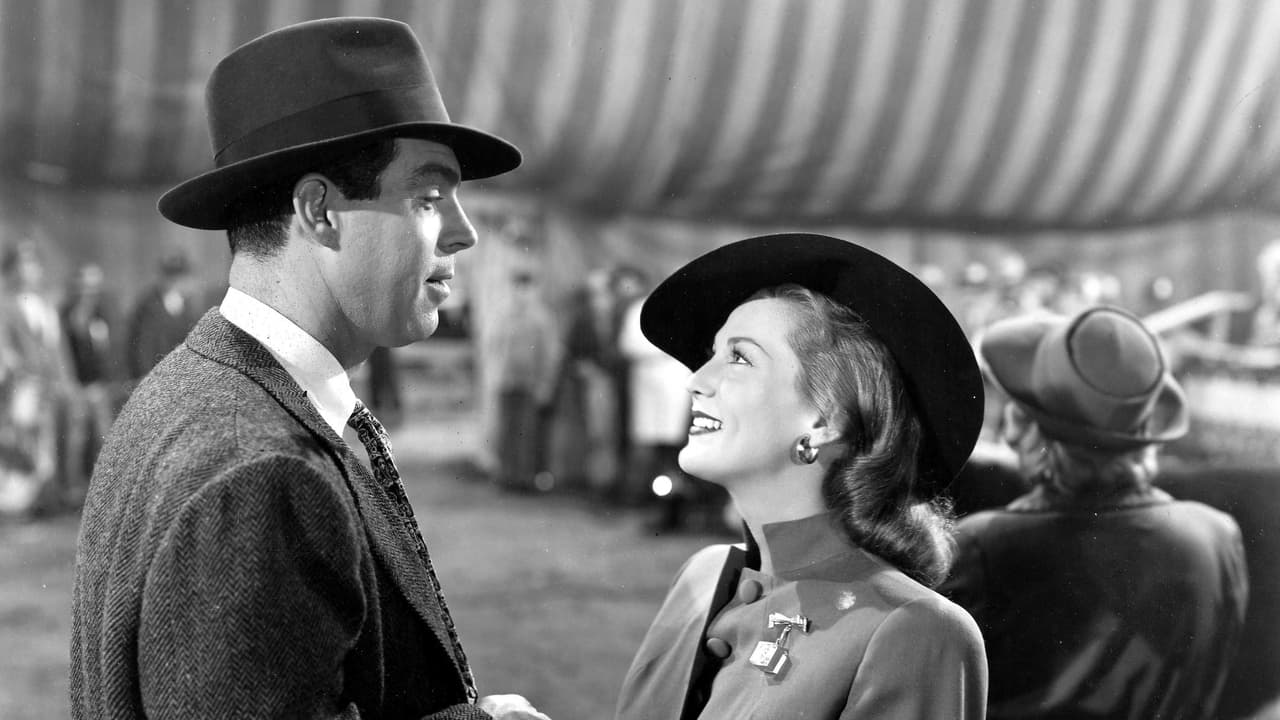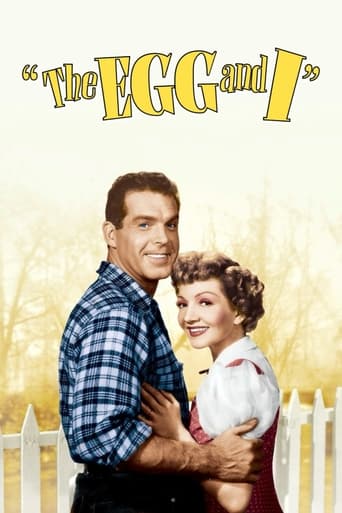

When the "Egg and I" came out in 1947, Claudette Colbert and Fred MacMurray had already made five other movies together, and they would do one more after this one. As with each of the first ones, they have wonderful chemistry in this film. Paramount made the first five that included one drama and four comedy romances. Universal signed the couple for this and the last pairing, "Family Honeymoon" the next year. This film is not the hilarious comedy and laugh-out-loud fun of other films. It rather has a warmth of humor in the travails of a city couple setting up in country living. Faith in partners and trust in love play a nice story within the story here, with a good lesson at the end. Colbert is one of the great actresses of all time. She was versatile and could act well in many genres. She had a distinct persona for comedy that made her unusual among actresses. She always played an intelligent woman, if not always a wise one. MacMurray likewise played well across genres. From his last years, people may remember him mostly as an absent-minded or funny professor. But MacMurray did much better comedy roles – mostly straight; and he made some fine Westerns and dramas. He was very good in the few action and mystery films he made. This is a wonderful movie that the whole family should enjoy.
... View MoreFred MacMurray & Claudett Colbert star in a romantic comedy which is pretty well done. More important in the long term was the supporting cast which they had - especially Percy Kilbride & Marjorie Main. This film is actually a movie pilot.The Kettle family was created here and became a series of films after starting in 1949. This family became dear to a lot of the film publics heart because it is the depression type big old farm family. Granted not every family featured Richard Long as a child as this one would, but the mom & pa that Main & Kilbride created resonated with the public strongly.This movie was a little better than the series of films because it does concentrate more on Fred & Claudette's plot, but overall the film is just a good one. If you are a fan of the Kettles, this film is essential in showing you where the idea of the folks started. It is interesting that Main's character also got a start with Abbott & Costello in The Wisful Widow Of Wagon Gap, but in spite of that, it took the balance with Kilbride to really round out her Ma Kettle character.
... View MoreHaving not seen this picture in years, I wondered if it would still be enjoyable. It is. Claudette Colbert is superb as Betty MacDonald, the author of the best selling book of what this is based upon, uprooting herself from the big city to accompany her husband (Fred MacMurray) on a farming dream. Their trials and tribulations are amusing and cute; MacMurray is well-cast. The film introduced the zany characters of Ma and Pa Kettle (Marjorie Main and Percy Kilbride), parents of 15 children, who were a huge hit and spawned their own series of 9 films (2 without Percy). However, my favorite character is Harriet Putnam, deliciously portrayed by Louise Allbritton, a slim, slinky, aristocratic, velvety voiced blonde beauty, with a yen for the burly MacMurray. She owns a very modern farm down the road, replete with farmhands, technology, conveniences, but "no Man." Her scenes with the jealous Colbert are priceless, and Allbritton shows a great flair for comic timing. This classic can be seen as an inspiration for two popular 1960s television comedy series, "Green Acres" and "The Beverly Hillbillies." Enjoy!
... View MoreThe book on which this film was based upon was a phenomenal best-seller in the mid-forties: readers loved the earthy tang and hilariously funny situations of Betty Smith's novel of the same name. Although this film version is rather a tame adaptation of the wonderful book, it definitely provides enough warmth, charm & chuckles to please viewers who aren't too discriminating. Claudette Colbert - in her last great film role - plays Betty with her particular warmth & charm: she and Fred MacMurray have an undeniable chemistry. Although they weren't youngsters here, they make you believe them youthful (Claudette was 44 & Fred was 39 here). For reasons which are unclear, Colbert never cared for this film, but the movie-going public just loved it! The film is perhaps most notable in introducing the characters of Ma & Pa Kettle as played by Marjorie Main and Percy Kilbride respectively. The public howled at the personalities and antics of this loveable country bumpkins, and they were on the road to a hugely popular series of their own which spanned from 1949-1957. It is really Main's AA-nominated performance of Ma which lingers in the memory: she was born to play the no-nonsense, down-to-earth but loveable Ms Kettle! Note that the Kettle's oldest son, Tom is played by none other than Richard Long, who would star as Jarrod Barkley in the beloved TV western series THE BIG VALLEY eighteen years later. Birdie Hicks is played to hilarious perfection by the acid- tongued Esther Dale.
... View More